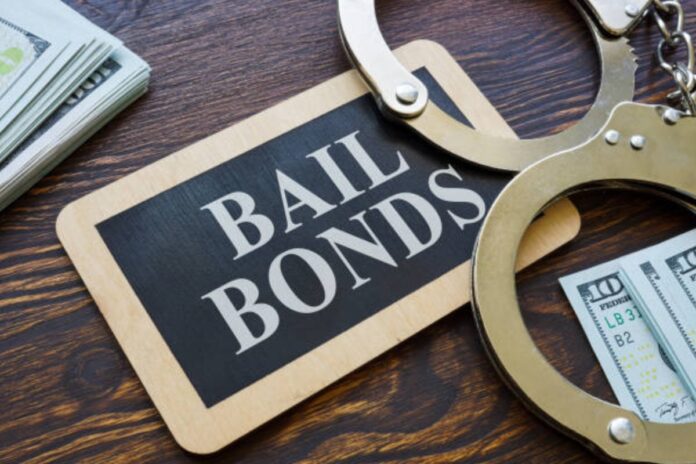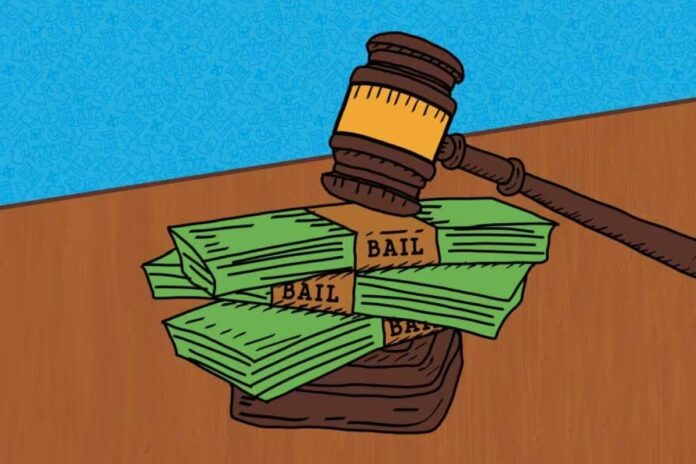The criminal justice system is a multifaceted structure, designed to uphold the law, ensure the safety of citizens, and administer fair and timely justice. At the heart of this system lies the concept of bail—a mechanism intended to guarantee the appearance of the accused in court. Bail allows an individual, arrested and charged with a crime, the opportunity to regain their freedom before trial, under the stipulation they will duly appear in court when summoned.
As society grapples with issues of justice, fairness, and equity, the role of bail bondsmen within this vast system has emerged as both a major support and a point of contention. This article explores the history, functionality, and controversies surrounding bail bondsmen. With a deeper understanding of this profession, readers can form an informed perspective on the delicate balance between ensuring individual rights and maintaining public safety.
What is a Bail Bondsman?

A bail bondsman is a person or corporation that serves as a surety for an individual who has been arrested, pledging money or assets as bail to ensure the defendant’s appearance in court. The primary duty of a bail bondsman is to cover the bail amount set by the court, allowing the defendant to be released from custody. In return, they charge a fee, usually a percentage of the bail amount. While the terms “bail bondsman” and “bail agent” are often used interchangeably, a bail agent typically refers to an individual or representative working on behalf of a bail bond company. There are also other related terms in the industry; for instance, a “bounty hunter” is someone employed by a bondsman to locate and apprehend defendants who fail to appear in court, ensuring the bondsman does not lose the money they’ve pledged.
The Economics of Bail Bonds
The bail bond industry operates on a unique financial model, grounded in risk assessment and capital leverage. Bondsmen make money primarily by charging a fee for their services, which is typically a percentage of the total bail amount set by the court—usually around 10-15%. This fee is non-refundable and serves as the bondsman’s income. However, there’s an inherent risk: if a defendant fails to appear in court, the bondsman is liable for the full bail amount. To mitigate this risk, bondsmen often require collateral from defendants or their families, ensuring they can recover losses. When a defendant skips bail, it could mean a substantial financial hit for the bondsman, hence the employment of bounty hunters to locate and return fugitives. For families and defendants, this system can be burdensome. While the bail bond service offers a way to secure release without paying the full bail amount upfront, the fees and potential loss of collateral can create significant financial strain.
Benefits of Using a Bail Bondsman

Engaging a bail bondsman during the often tumultuous aftermath of an arrest can offer several advantages. For one, they provide immediate assistance in what is undeniably a high-stress situation, guiding the accused and their families through the complex bail process with efficiency. Given the substantial amounts bail can often demand, many defendants lack the liquidity to cover it outright. Bail bondsmen offer financial flexibility, allowing clients to secure release by paying just a fraction of the total bail as a fee, and in some cases, they even offer structured payment plans tailored to a client’s capability. Beyond the monetary aspects, experienced bondsmen also possess a wealth of knowledge about the legal system. Their insights and advice can prove invaluable for defendants unfamiliar with court proceedings, helping them navigate the intricacies of the justice system more confidently.
The Bondsman’s Responsibility if a Defendant Skips Bail
When a defendant skips bail, the onus falls squarely on the bondsman, setting into motion a series of corrective actions. Bounty hunters, or bail enforcement agents, play a crucial role in this scenario. Often employed by bondsmen, these professionals specialize in tracking down and apprehending defendants who have failed to appear in court, thereby helping bondsmen mitigate potential losses. From a legal standpoint, if the defendant remains elusive, the bondsman is liable for the full bail amount to the court. This hefty financial responsibility intensifies the importance of the recovery process. Aside from relying on bounty hunters, bondsmen may also liquidate the collateral provided by the defendant or their co-signers during the initial agreement, ensuring they recoup their pledged funds. The entire process underscores the significant risks bondsmen undertake in their profession.
The Role of Bail Bondsmen in the Larger Criminal Justice System

Their interactions with courts and law enforcement are frequent and multifaceted; they ensure that defendants adhere to court mandates, thereby adding an additional layer of accountability. By providing an avenue for accused individuals to secure release before trial, bondsmen significantly influence detention rates. Without their services, jails might experience overcrowding with pre-trial detainees, many of whom could be held for minor offenses simply because they lack the funds for bail. This, in turn, impacts public expenses and the efficient utilization of jail resources. Beyond these logistical facets, bondsmen contribute to the overarching philosophy of the justice system: the presumption of innocence until proven guilty. By enabling defendants to maintain their freedom while awaiting trial, the bail bond system underscores the importance of this foundational principle, even as it navigates the complexities of risk and responsibility.
The criminal justice system relies heavily on bail bondsmen to bridge the gap between arrest and trial, ensuring that foundational principles like the presumption of innocence remain intact. As society continues to evaluate and reform its justice mechanisms, understanding the role and implications of bail bondsmen becomes necessary. Their profession, though occasionally contentious, plays an undeniably major role in balancing individual rights with the overarching goal of societal safety and justice.





![Calgary’s Hottest Neighborhoods for Luxury Homebuyers [2024]](https://thewashingtonote.com/wp-content/uploads/2024/04/Calgary-324x160.png)



